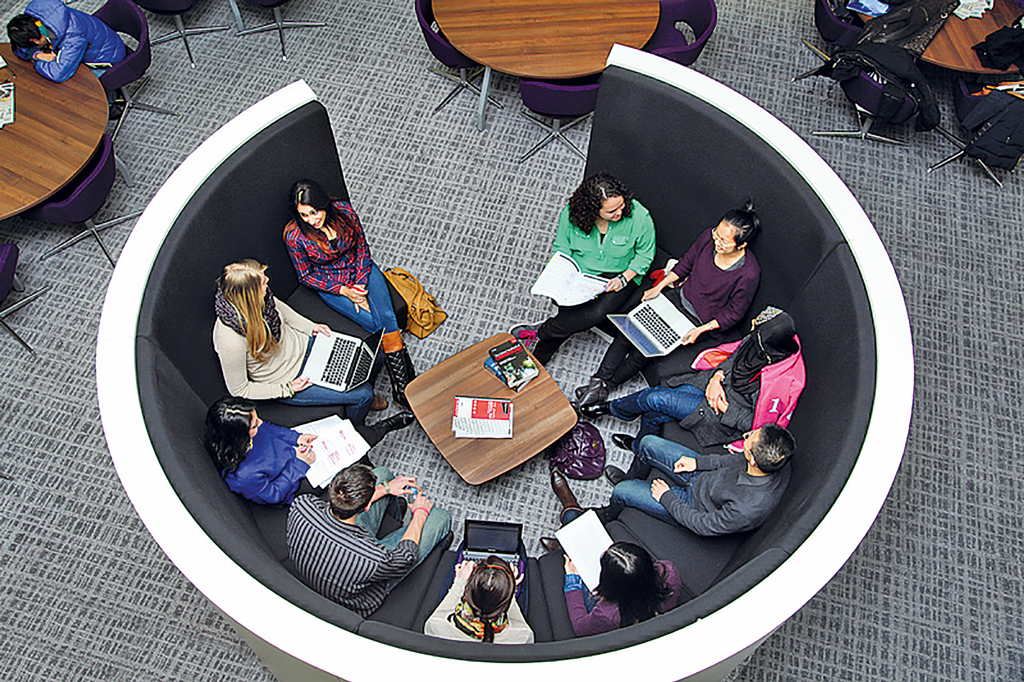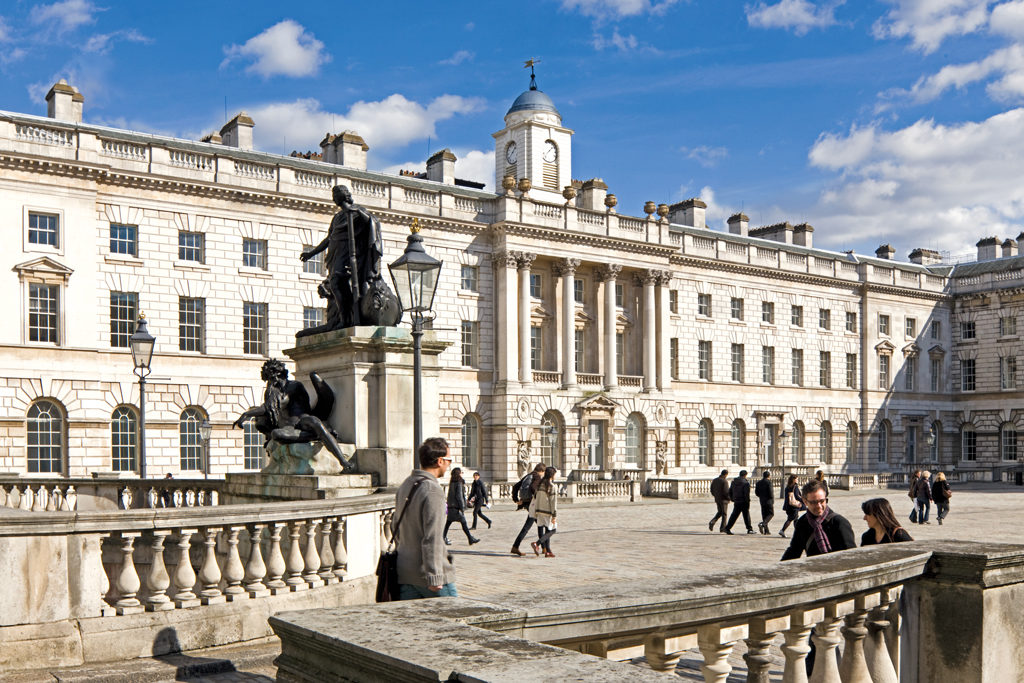Conquering the Capital: What’s Student Life in London Like?
By
6 years ago


Emma Love offers some tips to students setting their sights on a London university
If you had to guess which global cities are considered best for studying at university, you perhaps wouldn’t be surprised to learn that London is number one. According to figures produced by higher education marketing company QS, based on a survey of 50,000 students and released in May 2018, the capital beats previous winners Montreal and Paris to the top spot. Key factors include the number of excellent universities, the local jobs market, the diversity of the culture and the quality of life (the only area where London scored poorly was affordability). This is backed up by the latest Times Higher Education World University rankings which reveal that four universities in London are listed in the top 40: Imperial College London, University College London, the London School of Economics and Political Science and King’s College London.
Unbeatable Academia

Undoubtedly, it is the world-class academic offering and groundbreaking research departments at these universities that put them all at the top of the league – and make each one, as well as London, an exciting place to study. At multidisciplinary UCL, for instance, bioscience undergraduates are given the opportunity to get involved in breakthrough research, while archaeology students have access to the university’s collection of artefacts and the opportunity to undertake significant amounts of fieldwork. ‘UCL
has the best pharmacy school in the UK, plus I wanted to experience the city life,’ says third year pharmacy student Yi Sun from Essex of her reasons for choosing to study at the university. ‘My course is contact heavy with lots of lectures, but even if it wasn’t, there is so much on campus, from the libraries to the canteens, that I would spend a lot of time here anyway.’
King’s College is also at the cutting-edge of world-leading developments across faculties ranging from arts and humanities to nursing and neuroscience, and has more than 150 global partner institutions, many of which offer study abroad programmes that can boost students’ employability in an overcrowded workplace. And at Imperial College, which specialises in science, engineering, medicine and business, being in London is seen as a huge advantage, not only because the location means it is at the heart of a truly international community of employers but also because it paves the way for lectures from industry experts and internships with major companies.
Inspirational Opportunities
Meanwhile, the London School of Economics and Political Science boasts one of the largest social science libraries in the world (students also have access to Senate House Library near Goodge Street, a central research facility for colleges that come under the University of London umbrella and houses more than 30,000 print and electronic journals) and an outstanding programme of visiting speakers. ‘We get loads of top name guest lecturers across all the courses, partly because we’re in London and partly because we’re LSE,’ confirms third year international relations student Chessie Flack from Taunton, who was drawn to the capital to study because she wanted to experience life in a big city. ‘In terms of work experience, we’re next to Westminster so lots of my friends have done part-time roles in parliament and the civil service. It’s a massive advantage that only comes from being in London.’
The Cost of High Culture

But universities recognise that moving to a large and potentially lonely capital city has its challenges for students on tight budgets. King’s College’s finance initiative, Student Money Mentors, offer advice on everything from ‘London Life Hacks’ (think tips on free entry to film screenings and museums, and student oyster cards) to household bills.
Finding a Home from Home
Deciding on the right accommodation, in the right area of the capital and learning how to budget can seem like some of the most daunting tasks to new students unfamiliar with the city. At Imperial College, help is on hand from staff at its Student Hub. This online service provided to many universities, offers information ranging from handy charts that break down approximate weekly outgoings to a guide that shows the areas of London most popular with students to live (Hammersmith, Fulham and South Kensington come out top) and a timeline of when to start looking for accommodation. The team can answer almost any housing-related query and in May the team visit halls once a week to help students find a flatmate for the next academic year and check rental contracts.
Universities also work with specialist organisations which provide alternative student accommodation to halls of residence (often only an option for first year undergraduates) such as Chapter London, Student.com and Urbanest. The latter, which partners with the likes of the University of Westminster and UAL, has six properties within Zone 1 split into various types of rooms, studios and apartments to suit all budgets. Plus, each property has useful extras: study areas and social spaces, fold-up bicycles that can be borrowed for free, laundry rooms and even, at the Hoxton location, an on-site supermarket.
Settling In

‘Studying in central London can be an invigorating and rewarding experience and as a company that specialises in developing and operating large student residences, we prioritise wellbeing, security and accessibility,’ says chief executive Mark Morgan. ‘Ensuring students are close to local amenities is crucial, as is ensuring that they have the right blend of spaces inside buildings to study, socialise and exercise.’
Socialising is a vital ingredient to the success of the university years and universities are keen to overcome loneliness, which can accompany anyone’s move to a big city. At King’s College, each of the King’s Residences has a ResiLife team made up of post-graduate wardens whose role it is to help fellow students feel at home and student Community Facilitators are able to resolve any issues. ‘The ResiLife team is really important, especially for international students,’ says second year medical student and Community Facilitator Jessica O’Logbon. ‘Regular kitchen talks help everyone get to know each other in the building and make sure everyone is settled in, while Cooking with Confidence and other life skills workshops are a hit with all our residents and a great chance for the under-18 students to get to grips with living on their own.’
Londoner O’Logbon, who lives in at King’s College purely for the ‘community aspect of the residences’, says that there are all kinds of optional experiences that make students feel included, such as a free weekly outing. ‘The university is right in the centre of London so there is loads to do; one week we might go to the London Eye; another, the British Museum. Whether it is putting on fun events or helping someone with a maintenance issue, I feel as though I’m making a positive contribution to everyone’s experience of moving out for university.’
Shared Interests

Attending events like these is one way to meet and connect with fellow students. Imperial College also has an informative, unedited online blog written by students who discuss all kinds of topics from the pros and cons of ‘Freshers’ Halls vs Senior-year Halls’ to the regular ‘Women in Maths’ lunches where female alumni, current PhD students or lecturers speak about their research at the university or how they have applied knowledge from a degree during their career.
One such blog, written by Aishwarya Chidambaram who is studying Mathematics, Optimisation and Statistics, stands out for covering pre-university worries from missing home to making friends. ‘Among 17,000 students it is easy to get lost amid the commotion on campus,’ she writes. ‘Most people studying here are from smaller schools where it was much easier to stand out, whereas at Imperial everyone has similar strengths and interests. My biggest tip to overcoming this would definitely be to get involved in more than just your course around college.’

At LSE, one way to get stuck in is to become part of a hall committee, which has been elected by residents and welcomes new students, organises social events and raises any concerns to senior members of staff (in a survey completed in 2018, 87 per cent of students living in halls would recommend their residence to others and 79 per cent thought it offered good value for money). The fact that all the halls are located within the same few streets near Covent Garden and the Royal Courts of Justice building adds to the campus feel – it’s when students move out that feeling isolated becomes more of a possibility.
‘Once you move out of halls, though students mostly live with flatmates, feeling lonely is possible,’ says Flack, a third year student. ‘The student union organises lots of events and I’m a member of a few societies but I think it’s also good if you can find hobbies to do outside of university. I’ve got some friends who regularly go climbing, for instance.’
So it seems as if studying in London offers the best of both worlds: brilliantly, with unique educational opportunities standing students in good stead for their future career, as well as a wealth of culture to make the most of their downtime. ‘Having an external social life with a different group of friends can be a really good thing, especially in the more relaxed first year, and you can take advantage of the awesomeness that is London,’ concludes Flack. ‘Sometimes it’s nice to escape your studies and leave behind the university bubble.’
This article was originally published in School House Magazine Spring/Summer in March 2019.
READ MORE: Incredible Global Schools Worth the Long-haul | London Schools: A Cultural Sweetie Shop | Critical Thinking Lessons Teach Children to Question the Status Quo



